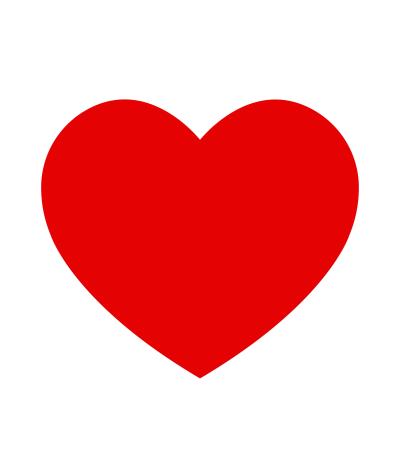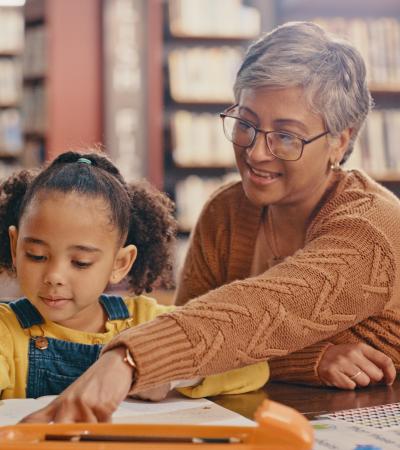Programming Librarian interviewed Kim Flores, library manager, and Katie Hopkins, planning and development librarian, on the challenges and successes of creating a program that values accessibility, privacy and dignity for all patrons.
Programming Librarian: How were the initial hygiene stations at the Library Station designed and stocked?
Flores and Hopkins: After reading an article about the Billings Public Library Community Cabinet (American Libraries, June 2023) and discussing it with the Library Station Reference Manager Haley White, who had attended a program at the ALA Annual Conference about libraries addressing period poverty, our branch convened a small committee to discuss how we might create a hygiene station of our own. We sought permission and guidance from our library’s associate director before pursuing the program.
While our branch had used donated items in the past to create some small “period packets” to give out, we all felt that we wanted to give patrons privacy and autonomy in dealing with their emergency needs rather than making them come to a service desk to ask. So, we began researching who in the community might want to partner to supply period products and diapers, and we repurposed some library furniture for a hygiene station.
A visit to the O’Reilly Center for Hope, where local unsheltered folks can find various helpful services under one roof, brought us into contact with several organizations like MSU Care, a free health clinic, and the Diaper Bank of the Ozarks. We investigated several leads and had some success with the Diaper Bank. While they couldn’t enter into a formal partnership with us, they gave us a one-time donation of 400 pads, liners, and tampons. An anonymous donor who was aware of our goal supplied us with packs of diapers and pull-ups sent directly to the library via Amazon, and another anonymous donor provided sets of toothbrushes and toothpaste. Some signage indicating what was inside completed the station, and we opened it for service in June 2024.
We checked the station every day and noticed right away that patrons were making use of the items. The positive comments and thank yous started coming in immediately.
We knew our other branches had similar requests from patrons who needed emergency period products, so when the Community Foundation of the Ozarks announced that their annual DEI grant period had opened, Planning and Development Librarian Katie Hopkins wrote a grant proposal and included the information we’d gathered in our committee. We learned in late November that our proposal had been selected. The $10,000 grant will enable us to provide period products throughout all 10 library branches.
PL: If another library wanted to try something similar, what should they expect it to cost?
F&H: This might vary depending on how a library plans to administer the program. If they wanted to do product drives in the community and intended to have an informal method of providing the products (like a basket or shelf in public restrooms), the cost would be minimal. If, on the other hand, they wanted to implement some sort of free-vend dispenser, they might consider working with one of the organizations like Honeypot, Aunt Flow, a local church or other organizations.
There are very inexpensive dispensers and some high-end ones that cost much more. Finding a supplier of fragrance-free, hypoallergenic period products with a low environmental profile could be tricky. We hope to work with a local company that supplies the library district’s other paper products.
PL: How do you plan to continue after your grant funding ends?
F&H: The grant we received is a pilot project. We plan to use this first year to keep track of how much product we use so we have the information we need to ask that the library budget be expanded to cover these items in the future. We hope to use our cleaning staff to refill the stations as necessary since they currently fill our other paper products.
PL: How will the library inform patrons about the availability of hygiene stations?
F&H: We do not plan on advertising that we have period products available. Our philosophy is that these items should be made available in the same way that paper towels and toilet paper are, and patrons can discreetly access them whenever they need them. We will place signage on dispensers to indicate they are free, provided by the Community Foundation of the Ozarks, and include a QR code for patron feedback. The dispensers will be installed in all public restrooms for convenient, private access.
PL: What tips do you have for libraries wanting to implement a similar program? Why should these products be given away for free?
F&H: Your administration must be on board. We started by doing our research, and then we went to the library administration to explain what we wanted to do and why. If you need funding, I’d suggest seeking donations from agencies that work with your community’s unsheltered or economically stressed patrons. If you’re not planning to use a free-vend dispenser, you probably have more leeway in the types of products you would accept, so you could recruit churches to do a period product drive.
The grant award triggered some media publicity, and all of that was very positive and helped to solidify the need and the response to it in the minds of community members.
Your local health department representatives might like to get involved, especially when you can point out that a recent study found that 40% of high school students have worn period products longer than recommended, leading to potential infections and illness. And some students aren’t able to attend school at all while having a period due to the lack of access to period products.
Well-resourced individuals have been caught in public without access to a period product when they needed one. Having free period products in our restrooms means all patrons can manage their needs with no stigma and allow longer, more meaningful time spent at the library. It is both an affordability and an accessibility issue. Period products are a public health service, just as tissues, paper towels, toilet paper, and hand sanitizer.
According to State of the Period 2023, almost one-quarter of teens and one-third of adults struggle to afford period products. We feel that access to the library and all it contains should not be limited because of a natural biological event like a period. If the library is for everyone, and we believe it is, then we should ensure that ALL patrons can safely use the public restrooms and the paper products supplied in public restrooms – including period products.



